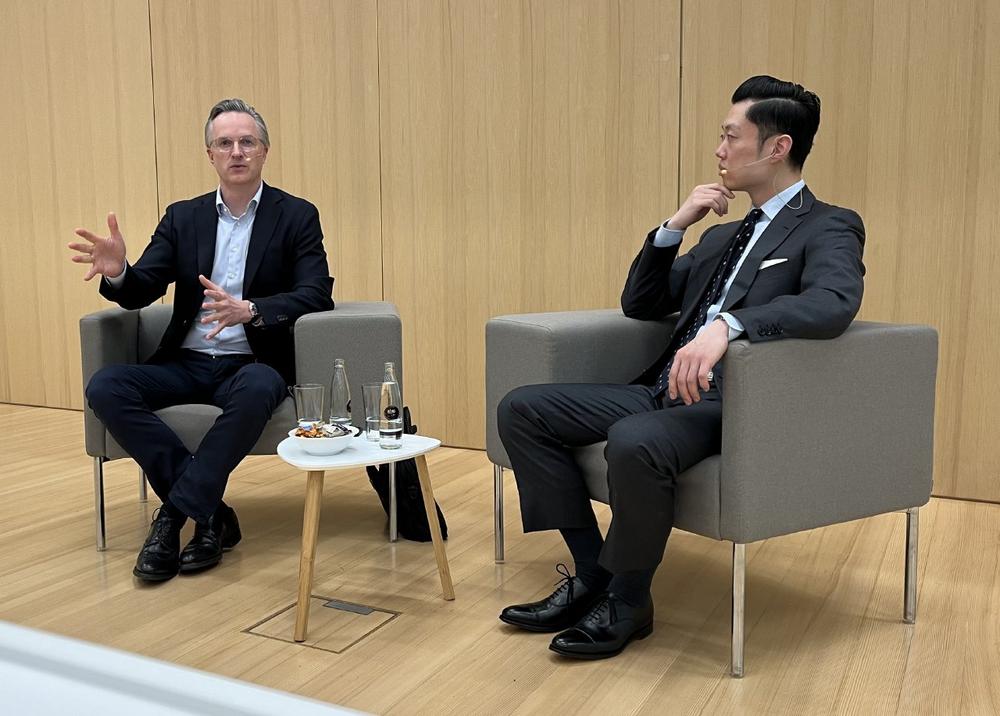Learning from every mistake

Breaking News:
Innovationen fördern und Denkanstöße setzen – SKZ veröffentlich neue Whitepaper
Promoting innovation and providing food for thought – SKZ publishes new white paper
Forschungszulagengesetz: Mehr Geld für Forschung und Entwicklung
Stromspeicher und Stromcloud: Sonne von heute für die Energie von morgen
Kathmandu Nepal
Montag, Jun 3, 2024

Marcus Berret had actually planned to take over his parents‘ business. “But my plans changed during my studies,” says Berret. Studying economics at the University of Hohenheim was a turning point in his life. “At the beginning, I was a rather average student, until something clicked in my second year.” Consulting sounded cool to the student, and the job profile tipped the scales: “Finding solutions to complex problems was and is exactly my thing.”
Between the worlds
But before his path led him to Roland Berger, Berret went travelling: Six months in Paris and six months in Tokyo radically changed his view of the world and showed him that different values count in different cultures: “If you stop at a red light in Paris, you’re laughed at; if you even think for a second about going off at a red light in Tokyo, everyone looks at you in horror,” he says and laughs. It was also not that easy to find a job in Asia: “Back then, emails weren’t very common, so I wrote 500 letters and was finally successful with one.”
Back in Germany, what belonged together grew together: Marcus Berret began his career at Roland Berger. His first task was a tough one: the merger of two large automotive groups, which included many different international brands. “First, I spent six months in Detroit and had to collect data on which customer group would suit which car brand. Today, this can be done dramatically faster with artificial intelligence.” It took him several more years to reach his current position as Global Managing Director, during which he gained experience for himself and others. The most important of these was hard and instructive.
It was triggered by a long, strenuous project in Japan: “I worked 100 hours a week back then and was rarely at home.” It was not just his health that suffered. “My motivation and drive were empty, my energy was depleted. Today we would call it a classic burn-out,” the manager looks back. Reason enough for him to change his attitude to life and work radically: “I used to want to please everyone and everything, then I switched gears and did my best, but I realized that there are things I can’t change or influence.” Since then, Berret has kept the weekends free for his private life.
Tips and tricks
In addition to a sustainable work-life balance, Berret advises students to take enough time for reflection: “it’s best to ask yourself every day what I’ve learnt today.” Because getting a little better every day is essential, as is knowing the framework conditions for doing so: “It is only possible to get the best out of yourself in the right environment – but this is only possible if you actively endeavor to do so,” appeals the experienced manager and continues: “Learn from your mistakes and from the mistakes of others. I’ve made thousands in my career, and every single one has helped me move forward.” It is also helpful to ask colleagues and friends for feedback and to accept it.
At the end of the interview, Prof Li elicits a few private insights from the manager. The students learn that the CEO loves Asian cuisine and enjoys going clubbing with his sons, preferably to hip-hop tracks: ”When the youngsters ask me what I’m still doing in the disco, I simply say: I own the club!” For him, role models and inspiration are fighters for justice and freedom like Nelson Mandela and professional sportsmen like Roger Federer because of their will for perfection.
A thousand more questions
In the Q&A session, the students pepper the manager with questions about the country’s political and economic situation. “Germany needs to rethink; we need 400,000 workers from abroad to keep the economy going. Every year. This will only work with a better welcoming culture.”
In order to convince him and the fast-growing consultancy firm as a potential employer, a high level of motivation is needed to overcome challenges and the willingness to push the boundaries. Marcus Berret will endeavor to answer any remaining questions after the event. Finally, it remains to be clarified how the journey back in time to the lecture theatre was for him. “Really cool. My student days were some of the best of my life!”
Die TUM Campus Heilbronn gGmbH
Bildungscampus 2
74076 Heilbronn
Telefon: +49 (0) 7131 264180
Telefax: +49 (7131) 645636-27
https://www.chn.tum.de/de
![]()